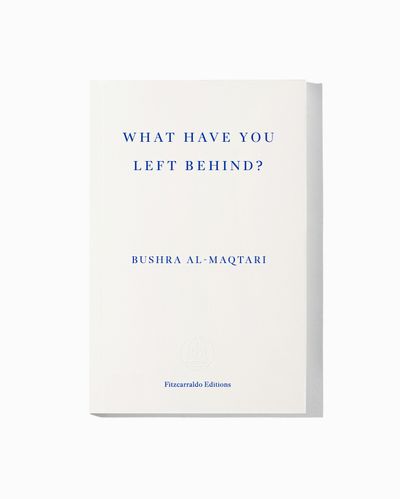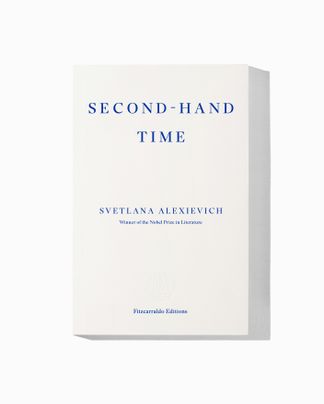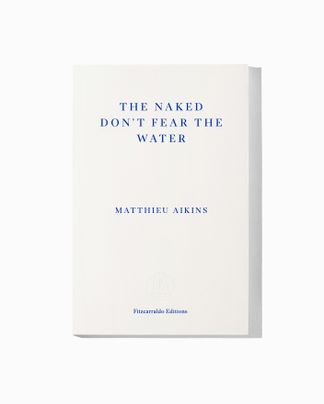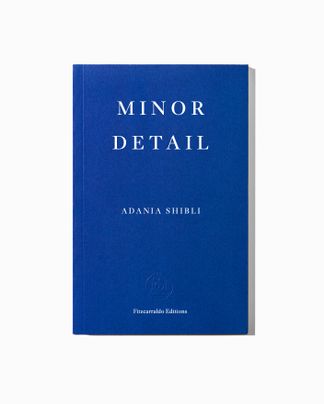In 2015, a year after it started, Bushra al-Maqtari decided to document the suffering of civilians in the Yemeni Civil War, which has killed over 350,000 people according to the UN. Inspired by the work of Svetlana Alexievich, she spent two years visiting different parts of the country, putting her life at risk by speaking with her compatriots, and gathered over 400 testimonies, a selection of which appear in What Have You Left Behind? Purposefully alternating between accounts from the victims of the Houthi militia and those of the Saudi-led coalition, al-Maqtari highlights the disillusionment and anguish felt by those trapped in a war outside of their own making. As difficult to read as it is to put down, this unvarnished chronicle of the conflict serves as a vital reminder of the scale of the human tragedy behind the headlines, and offers a searing condemnation of the international community’s complicity in the war’s continuation.

What Have You Left Behind?
Translated by Sawad Hussain
French paperback with flaps, 256 pages
Published 19 October 2022
What Have You Left Behind?
Translated by Sawad Hussain
SOMEWHERE IN THE GLOBAL SOUTH
In my dreams, the war is silent. No missiles, no air raids, no murder, no famine, no fear, no hatred. But when I wake, the war is still raging, just as it has been the past four years. Air raids light up the Sanaa night sky; ambulance sirens pierce the quiet of night. And while I write, I think about the time it took for war to reach us.
After all, a war like this doesn’t break out without warning; it takes a long time. A full turn of history. It took years, decades in fact, to push its way into our lives. I remember how its head drifted unmistakably towards us. It had been during the first weeks of March 2015, but our eyes weren’t open wide enough to see it coming. Or maybe they were, but we didn’t realize that what we were seeing were the harbingers of war. Houthi militia were on the streets, but it hadn’t been anything like the day Sanaa had fallen a few months earlier.
As night began, armoured vehicles and individuals in military fatigues holding weapons could be seen coming forth. These troops proceeded on the same desert roads used by ordinary travellers. I remember seeing military trucks rolling along the route from Sanaa to Aden. Slowly, they advanced through the mountain pass, blocking civilian traffic. The vehicles carried tanks that seemed fresh out of storage. Then a long line: rocket launchers, machine guns, more equipment, guarded by exhausted soldiers on foot. And even more trucks, this time with soldiers jam-packed on the back, some of them grinning stupidly at the Peugeot drivers beside them. And finally, the military police cars. They escorted the army on its way to the south of the country.
I reached Aden in the second week of March. The missiles shook the city from all sides. Houthi militia bombed the Presidential Palace in Maashiq. Army tanks trundled down the main streets. For the residents of Aden, the gunfire brought back bitter memories from the war of the summer of 1994; they had no idea that a new, much bloodier one awaited them. On 23 March 2015, the decision to go to war was made; diplomats and international employees left Sanaa, while foreign embassies closed their doors and evacuated their personnel. Likewise, political party leaders departed the country with their families. I bade farewell to some of them in good faith. It didn’t occur to me that they – having sensed the war was coming – decided to flee and leave us to our fate.
At that time, I was convinced the so-called civilized world wouldn’t leave us to the foolishness of politicians and generals, that this world wouldn’t just stand by idly watching us in the impending wreckage. That somebody would inevitably intervene – tomorrow, or maybe the day after, and stop us from wandering like an unknowing flock of sheep off a cliff. At 2 a.m. Thursday, 26 March, when the Arab Coalition’s fighter planes suddenly cut through the Sanaa sky, war became a reality. From that morning, what’s engraved on my mind isn’t the roar of the explosions, or the horrifying thunder of planes piercing the sound barrier, nor my anxiety over the trajectory of missiles hitting targets further than I could see, nor the sounds of war that I had grown accustomed to. Rather, it is the shock of how war was conjured, how life collapsed in one fell swoop: civil infighting, the humiliation of hunger, the indignity of it all, our generation’s lost dreams. They split the citizens into two warring camps, leaving the majority of us transformed into victims or voiceless beings.
—
I’m not concerned with listing the political details of the war here; instead, I have recorded in the introduction to this book the memories remaining in my mind of the bitter war we are still living through. An attempt to capture the essence of it all: the images of war I’ve seen and experienced, the disappearance of any kind of normal life, the damage and defeat that took root in my soul when the godfathers of war trampled patriotism, sovereignty and national unity beneath their heavy boots. But how can life in the shadow of a war that has destroyed everything be fully encapsulated? What’s undeniable is that we have returned to pre-civilization: all cities are without electricity, and we are living by the candlelight and gas lanterns used by our ancestors. And when the gas runs out at home, families resort to cutting down trees to use in wood stoves. There’s no clean water to drink, so it has become a daily occurrence to witness children and the elderly queuing up with empty pots to fill from tankers donated by some good doer. Poverty can be seen wherever you turn: citizens have lost their jobs and livelihoods, impoverished to the point they don’t even question the meaning of war, it has devastated them so. Women and children fighting over scraps from rubbish piles, families sleeping outside, people displaced in miserable camps on the out- skirts of cities, abandoned by the world and left forgotten there. Citizens have been stripped of their civil rights, blockaded by warring parties and countries that have taken military action in Yemen. When the Arab Coalition closed off the sea ports, land routes and national air space, thousands of citizens were stranded abroad. When the Arab Coalition finally reopened Aden International Airport, the blockade was still intact. No plane could take off from Yemeni airspace without permission from the leadership of the Arab Coalition. Friends shared the utter humiliation they endured at Bisha airport. Police dogs sniffed their luggage as if they were criminals – yet another country violating their rights. The Arab Coalition even shut Sanaa airport in August 2016, further exacerbating the situation.
In the midst of this complete misery in which we are living, a different world has emerged: one of new villas whose cement boundary walls span several streets, lavish high-rises glittering in dusty backstreets, sprawling malls, new petrol stations, currency exchanges, private schools and hospitals – all financed by stolen national revenue. This is the world of the new war rich, the war profiteers, the black-market tycoons, the relatives of the Houthi militia and of ex-president Ali Abdullah Saleh. The glamorous world of war has expanded, spreading to other capitals without us even knowing. The ministers, ambassadors and agents of the official Yemeni government waved the business flag of war from abroad. Elites who enrich themselves at the expense of the millions starving in Yemen. This is precisely why they, along with those they are fighting, are so keen for this war to last as long as possible.
They all live in a different time. A time outside the one where every day people are killed by air raids, missiles and mines. Where people are dying in prison cells, where people are made to disappear, their executioners leaving no trace. Where people are dying from hunger, cholera, or some other plague. Where the war robs people of their dreams. And our lives carry on in this time, ruled by invisible forces, whose laws only apply to the likes of us. It is only we who have to face the absurdity of this war, only ordinary people who are paying the price.
I remember April during the first year of the war. The war was fresh in the city streets, shops were closed, and petrol stations out of service with lines of parked cars in front. It was four in the afternoon when my husband and I made our way to Dh’Amran Centre. Fighter planes dropped bombs over different areas in Sanaa. Though it was close by, I paid no attention to the roar of the explosions. But when the clouds of smoke veiled Attan mountain and Dh’Amran Centre, I suddenly felt in my bones the meaning of war. Moments like these happened again and again: planes bombing, militia firing missiles… But I remember that day at Mount Attan because my friend Mohammed al-Yemeni, who had been taking photos of the explosions that day, wrote to me saying, ‘Why on earth did you come to Attan? You could have been killed!’ Mohammed was himself killed a few months later by militia gunfire. In the wake of his death daily questions abound about this absurd war that spills the blood of innocents. Around me the list of the dead grows longer and longer: family, relatives, friends, neighbours – all civilians killed for no reason.
(…)
‘This is an extraordinary collection of testimonies. It’s almost unbearable to read, but averting your eyes from the suffering to which the book bears witness feels craven. Brave, painful, necessary and harrowing, Bushra al-Maqtari’s work confronts the reader with the devastation of the war in Yemen and gives a voice to those whose lives have been destroyed by it.’
— Marcel Theroux, author of Strange Bodies
‘Bushra al-Maqtari’s boundlessly humane project of collecting firsthand accounts to document the nearly decade-long Yemeni Civil War – and the West’s complicity in it – is unblinking in its moral gaze. Every single voice collected in these pages is a blow to the heart. By the time I finished this book, I was consumed by sorrow and rage. This is an act of witnessing, and of making us engage in the witnessing of a disgraceful, criminal war that will shake your soul.’
— Neel Mukherjee, author of A State of Freedom
‘An oral history of war’s folly in the tradition of Svetlana Alexievich, as devastating as Goya or Picasso. Al-Maqtari summons us to witness the innocent lives lost, and the love that survives in their wake.’
— Matthieu Aikins, author of The Naked Don’t Fear the Water
‘For a conflict that has caused arguably the world’s worst humanitarian crisis, the war in Yemen is often described in the most inhuman ways.… Bushra al-Maqtari, a journalist, adds a human element to the conflict.’
— The Economist
‘The book’s cumulative effect is terse, angry and devastating. Its images will not leave you easily. Nor should they.’
— Daniel Trilling, TLS
‘Journalists covering war regularly claim their reporting gives “a voice to the voiceless”. What Have You Left Behind? demonstrates that survivors of Yemen’s conflict are not voiceless, they are unheard. Bushra al-Maqtari brings a cacophony of voices from one of the world’s most under-reported conflicts; voices that compel us to hear what war does to civilians living through it. What Have You Left Behind? is a disturbing, often evocative and emotional oral record of a war that most of us know little if anything about. This is not the sanitized, politicized version of the conflict debated in the power houses of far-off capitals. If you want to understand the true impact of war, brace yourself to hear these voices from Yemen.’
— Iona Craig, winner of the Orwell Prize for Journalism
‘Bushra al-Maqtari’s book is like a cry from those buried beneath rubble, those the world has forgotten, nobody hears, and nobody helps.’
— Ulf Kalkreuth, Das Erste
‘When the fire of this war dies down, and the regional conflicting parties agree to a truce, and foreign entities are invited to rebuild the country, in those moments we will still have these heartrending stories, as a reminder of the sheer folly, empty grandeur and cold-blooded cruelty embodied by the war in Yemen.’
— Qantara
‘Her elegiac chapters are like broken mirrors. In them, we perceive slices of life permanently shattered. The war is perversely asymmetrical, in which civilians going about their lives are at the mercy of planes, missiles, firearms, and forcible disappearances.… Beyond daunting statistics, al-Maqtari crafts individual shrines honouring lost lives. Though gripping, heart-breaking, and often unbearable, we must listen to these voices.’
— Farah Abdessamad, New Arab Review
‘Bushra al-Maqtari writes against forgetting…. Her reports get under our skin, horrify, move us to tears. Free of theatricality, the writing simple and compassionate, they make clear what war really means.’
— Susanne El Khafif, Deutschland Radio
‘Al-Maqtari’s portraits are unsettling in their urgency, their need to make the world understand that the war in Yemen must not be forgotten … I would even dare to speak of a kind of dark poetry in al-Maqtari. Her language is nuanced and empathetic.’
— Spiesser
‘What sets this book apart is its narrative style, without being a novel, and its means of recording and documentation, without actually being a written record or document…. What we read is painful, but our knowledge is enriched by the facts presented, as well as our literary experience with its language, marked by the pulse of life and death.’
— Al Quds
‘It is an attempt to put in words the way cluster bombs kill, and how it feels when your own children, siblings, or parents are torn apart by grenades, shredded by machine gun fire, crushed or buried beneath falling rubble.’
— Florian Keisinger, Der Tagesspiegel
‘What Have You Left Behind? is a memento mori for those trapped in a cynical theo-political system that works to deliberately perpetuate misery in the name of power.’
— Tom Bowden, The Book Beat
‘[A]n intimate look at the lives of everyday Yemenis affected by unimaginable violence…. Al-Maqtari’s writing has the moral force missing from international coverage because it takes us to the heart of the civilian experience of war. It gives voice and agency to Yemenis who would otherwise be nameless statistics to the outside world.’
— Laura Kasinof, Lux Magazine
Bushra al-Maqtari (b. 1979) is a writer and journalist who lives in Sanaa, Yemen. Her writings have appeared in various Arabic and international newspapers and magazines, including the New York Times. In 2013, she received the Françoise Giroud Award for Defence of Freedom and Liberties in Paris as well as the Leaders for Democracy Prize awarded by the Project on Middle East Democracy in Washington. In 2020, she was awarded the Johann-Philipp-Palm-Award for Freedom of Speech and Press, following on from the publication of What Have You Left Behind? with Ullstein Verlag in Germany.
Sawad Hussain is a translator from Arabic whose work has been recognized by English PEN, the Anglo-Omani Society and the Saif Ghobash Banipal Prize for Arabic Literary Translation, among others. She is a judge for the Palestine Book Awards. Her upcoming translations include Black Foam by Haji Jaber and Edo’s Souls by Stella Gaitano. She has run translation workshops under the auspices of Shadow Heroes, Africa Writes, The British Library, the National Centre for Writing, the Shubbak Festival and the Yiddish Book Center. She was the 2022 translator in residence at the British Centre for Literary Translation.




